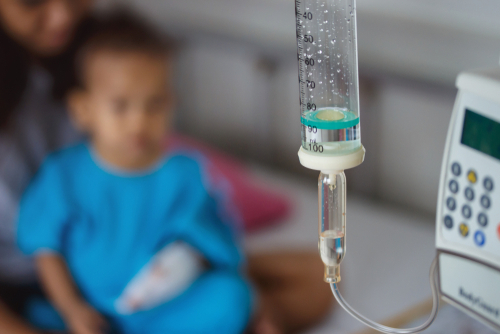Children with PID syndrome to be treated free of cost in govt hospitals in Haryana
UNI Feb 01, 2018
Children suffering from the Primary Immune Deficiency (PIDs) syndrome would now get support from the Haryana government and shall be treated free of cost in government hospitals under the Rashtriya Bal Swasthya Karyakram (RBSK).

Talking to media persons here on Wednesday, Chief Minister Manohar Lal Khattar said the state government would launch free life-saving initiative for PID children of Haryana and ensure that they get access to treatment free of cost. Children (0-18 years of age) suffering from PID will be covered under the RBSK, NHM Haryana. RBSK is a child health screening and early intervention services programme. It provides comprehensive care, including free of cost treatment (surgical as well as medical) to all children from birth to 18 years of age registered in Anganwadi Centres, government and aided schools of Haryana for birth defects, diseases, deficiencies, developmental delays including disability.
As many as 17 children suffering from PIDs from Haryana had already been registered at the PGIMER, Chandigarh. Eight to ten cases of PIDs are reported in a year at the PGI, Rohtak. PID is a heterogeneous group of inherited disorder with defects in one or more components of the immune system. Patients with PID have increased susceptibility to infections and also have predisposition to auto-immune diseases and malignancies.
Patients with predominant antibody deficiency need to be treated with intravenous gamma globulin (IVIg). They need replacement IVIg therapy every 3-4 weeks at a dose of 400-600 mg/kg. This treatment has to continue lifelong.
The treatment is expensive as cost of 5 gms of IVIg is approximately Rs 8000. Mortality in absence of regular treatment is high and cost of treatment of children suffering from PID varies from Rs 8,000 to 40,000 per month per child depending on the weight of the child.
Children who are diagnosed early and receive appropriate treatment do well on follow-up and can lead quality life and become useful members of the society as adults. However, if these individuals are denied access to this therapy, the consequences can be grave as mortality rates are, unfortunately, very high, the Chief Minister added.
-
Exclusive Write-ups & Webinars by KOLs
-
Daily Quiz by specialty
-
Paid Market Research Surveys
-
Case discussions, News & Journals' summaries